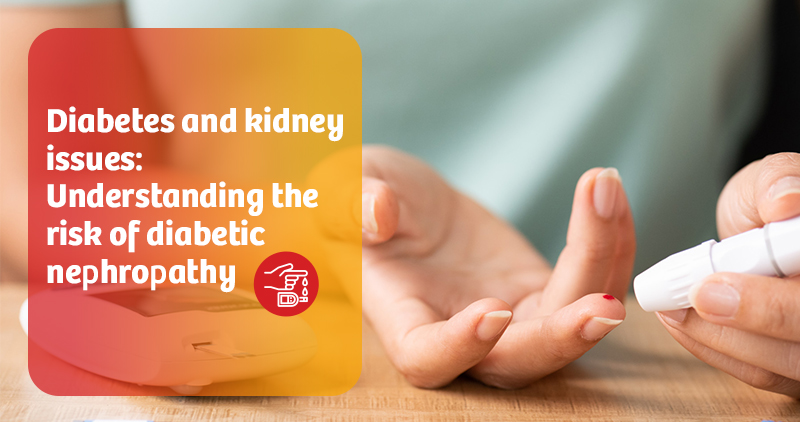

By Dr Hasit Kumar Patel
Consultant Nephrologist & Transplant Physician
May 24, 2025
Diabetes is a growing public health concern in India, affecting over 100 million people, and Gujarat is no exception. These growths are incredibly common, affecting women by the time they reach their reproductive age. Although many women with fibroids experience no symptoms at all, for some, fibroids can cause a range of significant and distressing problems.
The Indian Council of Medical Research (ICMR) reports that uncontrolled diabetes is a cause of kidney disease. In 2023, the ICMR-INDIA study found that the prevalence of diabetes in India was 10.1 crores. Diabetic kidney disease (DKD) is a leading cause of chronic kidney disease (CKD) and end-stage renal disease. DKD develops in about 40% of people with type 2 diabetes and 30% of those with type 1 diabetes.
At KD Hospital, Ahmedabad, we've witnessed a sharp rise in cases where diabetes silently damages the kidneys, eventually leading to chronic kidney disease (CKD) or even end-stage renal failure.
KD Hospital has successfully treated patients with diabetes-related kidney complications, offering state-of-the-art diagnostic and treatment options under one roof. This blog aims to raise awareness about the intricate connection between diabetes and kidney health—and how early intervention can change lives.
The kidneys are essential for filtering waste and excess fluid from the blood. In people with uncontrolled or long-term high blood sugar damages the small blood vessels in the kidneys, impairing their filtering ability. This condition is known as diabetic nephropathy, and it is one of the leading causes of chronic kidney disease (CKD).
According to the Indian Journal of Nephrology, diabetes accounts for nearly 40% of all kidney failure cases in India.
Diabetic nephropathy is a chronic and progressive kidney disease caused by prolonged high blood sugar levels, which damage the glomeruli—the tiny filtering units within the kidneys. It usually develops over years, often without symptoms in the early stages.
Early diagnosis is crucial. At KD Hospital, we offer routine urine albumin tests, serum creatinine measurements, and eGFR screenings as part of our diabetes care program to detect early signs of kidney involvement.
Several factors contribute to kidney disease in diabetic patients:
At KD Hospital, we focus on multidisciplinary care, where diabetologists, nephrologists, and dietitians collaborate for comprehensive management.
Diabetic kidney disease often progresses silently in the early stages. However, as the damage advances, symptoms may include:
KD Hospital encourages annual screening for all diabetic patients to detect kidney issues before symptoms arise.
At KD Hospital, we use evidence-based protocols and advanced diagnostic tools to monitor and manage diabetic nephropathy, including:
While kidney damage is often irreversible, early treatment can significantly slow progression. At KD Hospital, our integrated approach combines:
KD Hospital is recognised as a leading centre for diabetes and kidney care in Gujarat. Our patients benefit not only from cutting-edge treatment but also from compassionate, evidence-based support every step of the way.
Prevention remains the best cure. Diabetes can reduce the risk of kidney problems by:
KD Hospital runs regular awareness programs and diabetes education workshops to empower patients with knowledge and self-care strategies.
Best kidney care and transplant hospital in Gujarat.
The link between diabetes and kidney disease is both alarming and under-recognised. At KD Hospital, Ahmedabad, we believe in early intervention, patient education, and comprehensive care to tackle this rising health challenge. Whether you are newly diagnosed with diabetes or have been managing it for years, regular screening and proactive care can prevent kidney complications.